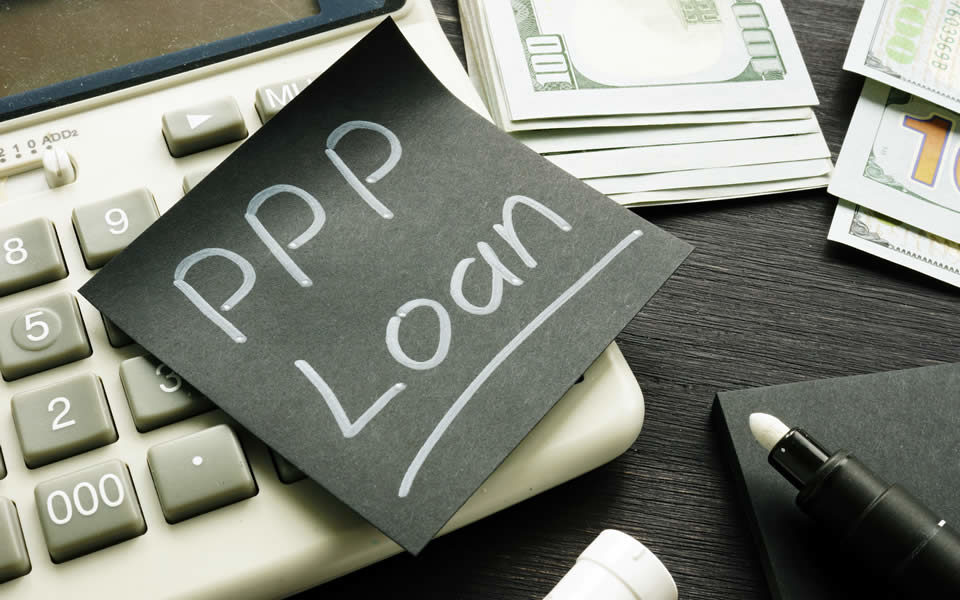Should RIAs Repay PPP Loans Instead of Seeking Forgiveness?
By Gary Mills, Partner, Assurance Services & Nina Iliushin, Supervisor, Assurance Services
When the Small Business Administration (SBA) established the Paycheck Protection Program (PPP) under the CARES Act, Registered Investment Advisors (RIAs) applied for and received forgivable loans along with many companies and small businesses across the country. In the earliest stages of the pandemic, there were forecasts for economic collapse, extremely high death rates, and an economy that would suffer a prolonged recession or even a depression. RIAs witnessed the stock market losing 30% of its value in March and feared the worst. With fear of economic collapse or, at a minimum, declining investment advisory fees towards the end of Q1 2020 and beginning of Q2 2020, RIAs were nervous about covering payroll costs and were considering reductions in workforce. As a result, many RIAs applied for PPP loans just in case the worst case scenarios played out.
Most recent data released by the SBA show that more than 1,400 financial advisory firms received loans of at least $150,000. The federal government recently increased the time period to spend the PPP funds from eight weeks to 24 weeks. Furthermore, the percentage of funds required to be used towards salaries was reduced from 75% to 60%.
RIAs that received funds need to consider what disclosures, if any, they should make in their Form ADV and to their customers. In an April 27 FAQ release, the Securities and Exchange Commission (SEC) was asked whether RIAs were required to disclose receipt of a PPP loan (regardless of the intent to repay or seek forgiveness). While the SEC guidance declined to offer a definitive response, it left the disclosure requirement open for interpretation under the “material fact” clause. Specifically, the SEC stated in a recent FAQ:
As a fiduciary under federal law, you must make full and fair disclosure to your clients of all material facts relating to the advisory relationship. If the circumstances leading you to seek a PPP loan or other type of financial assistance constitute material facts relating to your advisory relationship with clients, it is the staff’s view that your firm should provide disclosure of, for example, the nature, amounts and effects of such assistance. If, for instance, you require such assistance to pay the salaries of your employees who are primarily responsible for performing advisory functions for your clients, it is the staff’s view that you would need to disclose this fact. In addition, if your firm is experiencing conditions that are reasonably likely to impair its ability to meet contractual commitments to its clients, you may be required to disclose this financial condition.
RIAs should consider whether obtaining the PPP loan in and of itself constitutes a “material fact” that should be reported on Form ADV since the initial application for the PPP loan requires the RIA to certify that the loan is “necessary to support the ongoing operations.” An example disclosure on Form ADV could be as simple as:
On May 1, 2020, the Company received a Paycheck Protection Plan Loan of $100,000 under the CARES Act. The Company complied with the terms of the program and, accordingly, expects the loan to be forgiven. The Company did not suffer any interruption of service.
In SBA FAQ #46, the question was asked: How will SBA review borrowers’ required good-faith certification concerning the necessity of their loan request? The SBA’s response was as follows:
When submitting a PPP application, all borrowers must certify in good faith that “[c]urrent economic uncertainty makes this loan request necessary to support the ongoing operations of the Applicant.” SBA, in consultation with the Department of the Treasury, has determined that the following safe harbor will apply to SBA’s review of PPP loans with respect to this issue: Any borrower that, together with its affiliates, received PPP loans with an original principal amount of less than $2 million will be deemed to have made the required certification concerning the necessity of the loan request in good faith. SBA has determined that this safe harbor is appropriate because borrowers with loans below this threshold are generally less likely to have had access to adequate sources of liquidity in the current economic environment than borrowers that obtained larger loans. This safe harbor will also promote economic certainty as PPP borrowers with more limited resources endeavor to retain and rehire employees. In addition, given the large volume of PPP loans, this approach will enable SBA to conserve its finite audit resources and focus its reviews on larger loans, where the compliance effort may yield higher returns. Importantly, borrowers with loans greater than $2 million that do not satisfy this safe harbor may still have an adequate basis for making the required good-faith certification, based on their individual circumstances in light of the language of the certification and SBA guidance. SBA has previously stated that all PPP loans in excess of $2 million, and other PPP loans as appropriate, will be subject to review by SBA for compliance with program requirements set forth in the PPP Interim Final Rules and in the Borrower Application Form. If SBA determines in the course of its review that a borrower lacked an adequate basis for the required certification concerning the necessity of the loan request, SBA will seek repayment of the outstanding PPP loan balance and will inform the lender that the borrower is not eligible for loan forgiveness. If the borrower repays the loan after receiving notification from SBA, SBA will not pursue administrative enforcement or referrals to other agencies based on its determination with respect to the certification concerning necessity of the loan request. SBA’s determination concerning the certification regarding the necessity of the loan request will not affect SBA’s loan guarantee.
Many companies and RIAs focused on the “safe harbor” of $2 million. However, the final rules issued in the Federal Register 13 CFR Part 120 states: “SBA may begin a review of any PPP loan of any size at any time in the SBA’s discretion.” This review consists of borrower eligibility, loan amounts and use of proceeds, and loan forgiveness amounts.
As Mark Cuban said several weeks ago on CNBC’s Fast Money, “Shake Shack didn’t give the money back because they didn’t want the money. They saw what the public outcry was.” Cuban went on to say that he would tell public companies like Shake Shack that took money from the program that it’s detrimental to their brand and company reputation. To avoid regulatory scrutiny, bad press, or just because it may be the “right thing to do,” given the market significantly recovered from its lowest point in 2020, RIAs choosing to repay a PPP loan may want to consider disclosure of this fact in an amended Form ADV filing as a “goodwill marketing gesture.”
Lastly, RIAs should consider whether or not the PPP loan and related forgiveness/repayment should be disclosed to clients and, if so, what that communication should say in order to be consistent with the application wording and with the Form ADV disclosure.
Marcum can assist you in calculating your average monthly payroll for the loan application as well as for compliance with the requirements of the loan forgiveness program. We offer interim and final field work assistance to maximize the amount of loan forgiveness. For further guidance on this or any other items related to the Paycheck Protection Program, contact your Marcum professional today.
Coronavirus Resource Center
Have more questions about the impact of the coronavirus on your business? Visit Marcum’s Coronavirus Resource Center for up-to-date information.





















